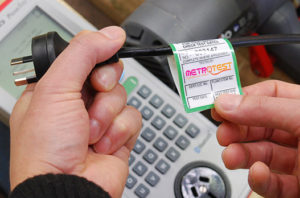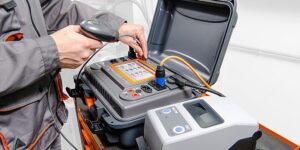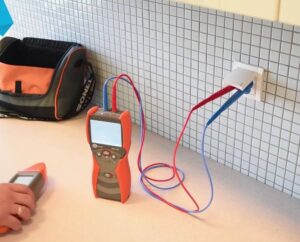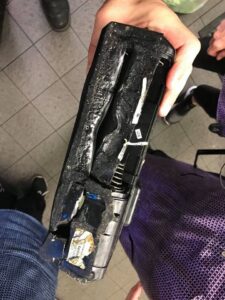
Different Types of Test and Tag Labels in NZ
Test and tag are critical in ensuring safety at workplaces and venues. Regular PAT testing also helps identify potential problems in a piece of electrical equipment which in return helps save money on repair or replacement with early diagnosis of faults. Make sure you have completed our online course so that you have the technical know-how in using a PAT tester and suitable labels and label printers. More importantly, you will need to familiarise yourself with the different types of test and tag labels.
Test Tag and Labels used in NZ
An appliance test and tag label must contain the following details, as a minimum:
- The AS/NZS 3760 label to reference the Standard used
- The name of the person or company who conducted the test
- The date you tested the appliance
- The next testing date based on the validity period or the recommended testing and tagging interval
Other additional information that can be on the labels/tags includes things like the actual individual test results (including actual values). The METROiPAT will automatically print these if the PAT is set to ‘detailed tag’. This feature is very good for audit purposes. A FAILED ‘detailed’ label/tag printed from the METROiPAT will also itemize the actual fault ie the reason the appliance/tool failed, this is very helpful to the repairer where the fault is not obvious.
It is becoming common now for PAT testers to also be used for other things such as checking ladders. So there are labels that can be printed for WOFs for ladders, PPE gear checks all from the same PAT tester. These will usually detail the inspections done.
‘Passed’ Test Label
If your appliance/tool passes the PAT testing then you will put on a ‘Passed’ Label/tag. This can come in any colour and is often colour-coded for testing time frames.
‘Failed’ Test Label
Conversely, if your appliance didn’t meet the criteria for a Passed PAT testing tag, you can use the red Failed tag.. Red usually serves as a warning sign, indicating that the appliance isn’t safe for use. It also encourages whoever sees the tag to avoid using or operating the appliance/tool.
Types of Test Labels/Tags
Besides the two main classifications of testing and tagging labels for PAT appliance tests, you can also choose from either an all-purpose (light-duty tags), heavy-duty or industrial type.
Essentially, a light-duty/medium-duty tag suits appliances used in indoor environments such as offices. Heavy-duty, is an excellent choice if you need test and tag labels for a piece of outdoor electrical equipment because they often feature a laminated flap or overlay to protect the appliances’ testing details. On the other hand, industrial test tags best suit appliances used in harsh environmental conditions, including mining and construction, as they are made of a robust material and have to be handwritten.
There are many colours of test tag labels to choose from which makes it easy to see when an appliance or tool is due for testing and tagging. There are also test tags that have dual colours with strikeouts, a system unique to the METROiPAT tester, which gives the even greater ability for colour coding and for further identification purposes.
Metrotest PAT Test and Tag Labels

You can buy your labels at a common warehouse store such as Bunnings or Placemakers, or you can get the full package from Metrotest. We offer various test and tag labels from the customised WHITE LABEL ONES to the laminated labels. You can also shop for test and tag labels according to the printer or PAT tester you use.
If you prefer personalising the tag, you can choose the custom-printed type. You can change the colours used, include your branding, QR and barcodes, and other customised text.
We also offer test and tag labels in standard pre-cut and continuous labels. Continuous labels allow you to fully control the size and length of the label produced (if your PAT Tester supports this function).
To give you a quick idea of the various test tag and labels you can shop for at MetroTest, we created a table that summarises the main points of comparison – the size and cost.
|
Type
|
Size & Type |
Cost
|
| Small Pre-Printed PASSED Tags
(Light duty non customisable) |
45mm x 35mm (200 labels/roll)
Manual Test Tags |
$50.00 ex. GST |
| Custom Printed (with logo etc) with Serial Numbering |
50mm x 100mm (500 labels/roll)
Manual Test Tags |
$145.000 ex. GST |
| Custom Printed Labels (with logo etc) |
50mm x 100mm (500 labels/roll)
Manual Test Tags |
$115.00 ex. GST |
| Tough Thermal Transfer Labels (Sato CG2 or Zebra TLP) |
50mm x 100mm (400 labels/roll)
Thermal Transfer Printer Tags |
$61.00 ex. GST |
| C4/PC4 Tough Thermal Transfer Labels (Intermec C4/PC4) |
100mm x 50mm (500 labels/roll)
Thermal Transfer Printer Tags |
$85.00 ex. GST |
| Continuous Roll Tough Thermal Transfer Labels (GoDEX RT200) |
50mm x 40m
Thermal Transfer Printer Tags |
$61.00 ex. GST |
| TZe Laminated Tough Label (Brother PTP 750W) |
24mm (Cartridge)
Direct Thermal Printer Cartridge |
$52.13 ex. GST |
|
|
|
Shop for your test and tag label supplies at Metrotest
Regardless of the specific type of test and tag label you need, you can find it here at MetroTest. We have customised labels as well as tough thermal transfer labels. Check out our selection of test and tag labels today! If you have questions about the product options we offer or need help finding the right label or label printer, you can reach out to our team.
Additionally, in case you’re leaning towards having your appliances tested by a professional, you can also hire a PAT tester through MetroTest or employ Metrotest to do your testing for you. We have plenty of PAT testers ready to help our clients. Work with the go-to authority for testing and tagging appliances in NZ today!























